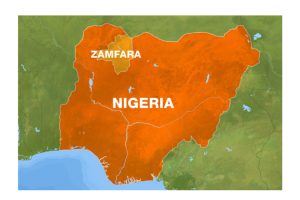Residents of Okoro-Utip, an Akwa Ibom community have continued to agonize over the endless devastating effect of oil exploration in the area.
The people have over the years lamented the negative impact of oil exploration and spills due to the activities of the multinational oil company, Exxon Mobil, in their local government, Ibeno.
The incessant oil spills and gas flares had no doubt affected their terrestrial and aquatic agriculture, as well as their environment, as no meaningful yield is witnessed at every harvest season.
Pastor AbasiUbong John, a resident of Okoro-Utip, in an interview, complained that cassava stems planted over one year ago, were yet to bear tubers.
Another farmer and women leader in Upenekang community, Rhoda Peters, on her part said despite applying fertilisers to her crops, the yields were always heartbreaking “due to the texture of the soil which has been impacted by oil spills”.
She added that such had caused food scarcity and hunger in the community which made the prices of few available food stuffs to be jerked up.
Expressing her worries, Peters said, “Things are so difficult in our area.
“Imagine a cup of garri is sold at N300 and a bag of sachet water N500. We have no choice but to go back to our farms. I have five girls in my house and how much garri can I buy to feed them?
“The challenge is that despite the fact that I apply chemical fertiliser, the harvest is nothing to write home about. I cry each time I harvest my crops.”
Chief Philip Atanwa, Chairman, Okoro-Utip village council, who also spoke to DAILY POST, attributed the poor yield and persistent erosion in his community to the activities of oil companies in Ibeno.
The Octogenarian recalled that before the entrance of the oil companies, the farm produce and aquatic animals from the community were the cynosure of all eyes due to their natural heritage.
He expressed hope that things would change for better soon following the training our community received on Agroecology.
“We know we’ve been so cheated by the company producing oil in Ibeno.
“We have lost so much to oil exploration; our environment, our land have been taken away by erosion through the activities of this oil producing company.
“I believe that this is the time for us to start rebuilding our broken and degraded environment by putting what we are taught into practice,” he said.
He said his community would “set aside a large portion of land for this planting season where everyone will apply what they learnt.”
Pastor Abasiubong John, a farmer, explained that Mangrove protects against erosion and serves as a habitat for fish to lay eggs, noting that the community has become very porous.
“We’re experiencing erosion since the absence of this mangrove; even the periwinkle that always appears on this mangrove is no longer here.
“Our lands have been taken away due to erosion and we have hope of reclaiming it,” he said.
Meanwhile, the community may heave a sigh of relief in no distant time following the training it received from an ecological think tank organisation, Health Of Mother Earth Foundation, HOMEF, on Agroecology and Mangrove restoration.
The Programme Manager, Fossil Politics in HOMEF, Stephen Oduware, speaking with our correspondent, noted that the community had lost its mangrove ecosystem on account of pollution and felling of trees by the locals, adding that the organisation was working towards how to restore it.
He said to achieve that, HOMEF resolved to train the highly impacted community on agroecology and mangrove restoration by showing them how to produce organic fertiliser and pesticides using cow dung, cow urine, bananas, cowpeas, soil, water, garlic and other ingredients found around them.
“Here we are having a practical training session on how they can restore these mangrove using the pods and seeds of these mangrove and we have the issue of the evasive specie of Nipa palm that is foreign to us.
“Communities should start looking at ways of removing these evasive species that are not native and start replacing it with mangroves which support farming, support the community against dangerous storms from the sea and support fishery.”
He, however, expressed optimism that at the end of the training, the community would come up with a restoration plan to highlight how they would use the knowledge gained from the meeting to restore their environment, their farmlands and restore the depleted mangrove forest.
The resource person, Iwan-Aondover Barnabas explained that the mixture (organic manure) when applied in the soil would add value and rejuvenate all the poor lands that were no longer productive in the area.
He said, “what our farmers lack is knowledge for production, how to engage in practices that would increase their production, now they know they can produce their fertilisers and pesticides with things around them.
“This will save them the cost of buying chemical fertiliser and will add more value to the forest system they have.
“It will also rejuvenate all the poor lands that are no longer productive and this will add value to the land.”
Source
Disclaimer: No copyright infringement intended. All rights and credits reserved to respective owner(s).



















Add Comment